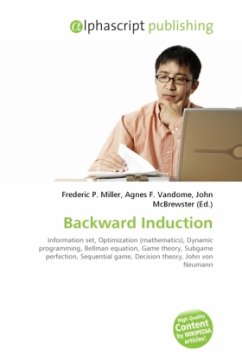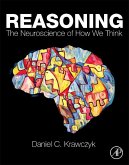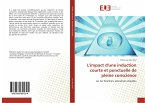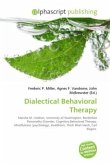Backward induction is the process of reasoning backwards in time, from the end of a problem or situation, to determine a sequence of optimal actions. It proceeds by first considering the last time a decision might be made and choosing what to do in any situation at that time. Using this information, one can then determine what to do at the second-to-last time of decision. This process continues backwards until one has determined the best action for every possible situation (i.e. for every possible information set) at every point in time. In the mathematical optimization method of dynamic programming, backward induction is one of the main methods for solving the Bellman equation. In game theory, backward induction is a method used to compute subgame perfect equilibria in sequential games. The only difference is that optimization involves just one decision maker, who chooses what do at each point of time, whereas game theory analyzes how the decisions of several players interact. That is, by anticipating what the last player will do in each situation, it is possible to determine what the second-to-last player will do, and so on.
Bitte wählen Sie Ihr Anliegen aus.
Rechnungen
Retourenschein anfordern
Bestellstatus
Storno








